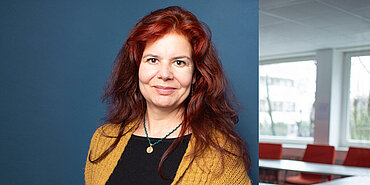Caren Marks, the Parliamentary State Secretary of the Federal Youth Ministry, gave an opening speech at the kick-off conference of VISION:INCLUSiON on 29 November 2018. A large number of youth work experts from all over the world had come to Berlin to discuss how young people with a disability can be given unhindered access to international youth work activities.
In her remarks, the Parliamentary State Secretary emphasised that “all individuals have a right to education and participation in society. International youth work can play a major role in making inclusion happen. It is vital to identify existing best practices and develop and implement new ones so that one decade after the adoption of the UN Convention on the Rights of Persons with Disabilities, the terms ‘dignity’, ‘accessibility’, ‘equality of opportunity’, ‘independence’ and ‘participation’ can be brought to life.”
Bringing the UN Convention to life is exactly what the first phase of the project (2015-2017), then known as VISION:INKLUSiON, was all about, as IJAB Director Marie-Luise Dreber outlined in her remarks. Using the experiences and initiatives of a variety of stakeholders as a starting point, the project brought together international youth work experts and representatives of disability community organisations, disability service organisations, the research community and public administration who drew up an inclusion strategy for international youth work (Everyone’s invited! Successful inclusion in international youth work).
However, during this process it became clear, as Dreber explained, that once the strategy was developed, the real challenge would be to establish inclusive practices at the international level. “The circumstances in the individual countries have a big impact on whether inclusive international youth work can flourish, such as social structures, the political framework, practical issues surrounding accessibility, as well as unconscious attitudes towards disability, normality and inclusion,” she said.
From VISION:INKLUSiON to VISION:INCLUSiON
Against this backdrop, the second phase of the project – which will run through to 2020 – will now lift the inclusion strategy to the international level. This requires having a conversation about the different attitudes, ideas and circumstances that exist in other countries when it comes to inclusion. What do we understand by the term “inclusion”? How do we want to translate the strategy into practice? What good practices are there already?
These were the questions discussed by experts from Latvia, Germany, Greece, Ghana, Austria, Turkey, Japan, the UK, Poland, Belgium, Russia, Croatia, Finland, Serbia, Bulgaria, France and Italy during the international kick-off conference.
Day one of the meeting was dedicated to presentations on the historical context of inclusion (Giampiero Griffo, Disabled People’s International World Council), the current situation regarding inclusive youth work in Germany (Dr Eric van Santen, German Youth Institute) and current research insights (Christian Papadopolous, designbar consulting), which brought the audience up to speed on the state of play. By contrast, day two was all about getting the second phase of VISION:INCLUSiON off to a strong start.
In workshops centring on the three priority themes of the project, “Criteria for inclusive international youth work”, “Training” and “Working with partners”, participants were called upon to contribute their expertise. What are the objectives we should work towards? What can we achieve by 2020? And what do we need to get there?
The final session during which the workshop results were presented to the plenary made it quite clear that all participants are determined to follow through with the project. Three international working groups have already formed, and will now get to work on the three priority themes. It was quite clear to everyone that plenty of interaction between the working groups will be vital, so that the quality and quantity of inclusive international youth work activities can be given a long-term boost.
A comprehensive documentation pack for the kick-off event including all presentation slides and conference outcomes is in preparation. If you couldn’t join us in Berlin but still want to be informed of the results, write to us at vision-inklusion(at)ijab.de.
VISION:INCLUSION is a project by IJAB – International Youth Service of the Federal Republic of Germany and receives funding from the Federal Youth Ministry.
[Sources: IJAB, Federal Ministry for Family Affairs, Senior Citizens, Women and Youth]


![[Translate to Englisch:] [Translate to Englisch:]](/fileadmin/_processed_/a/9/csm_Vision_Inklusion_Start_6e7c2f1651.png)
